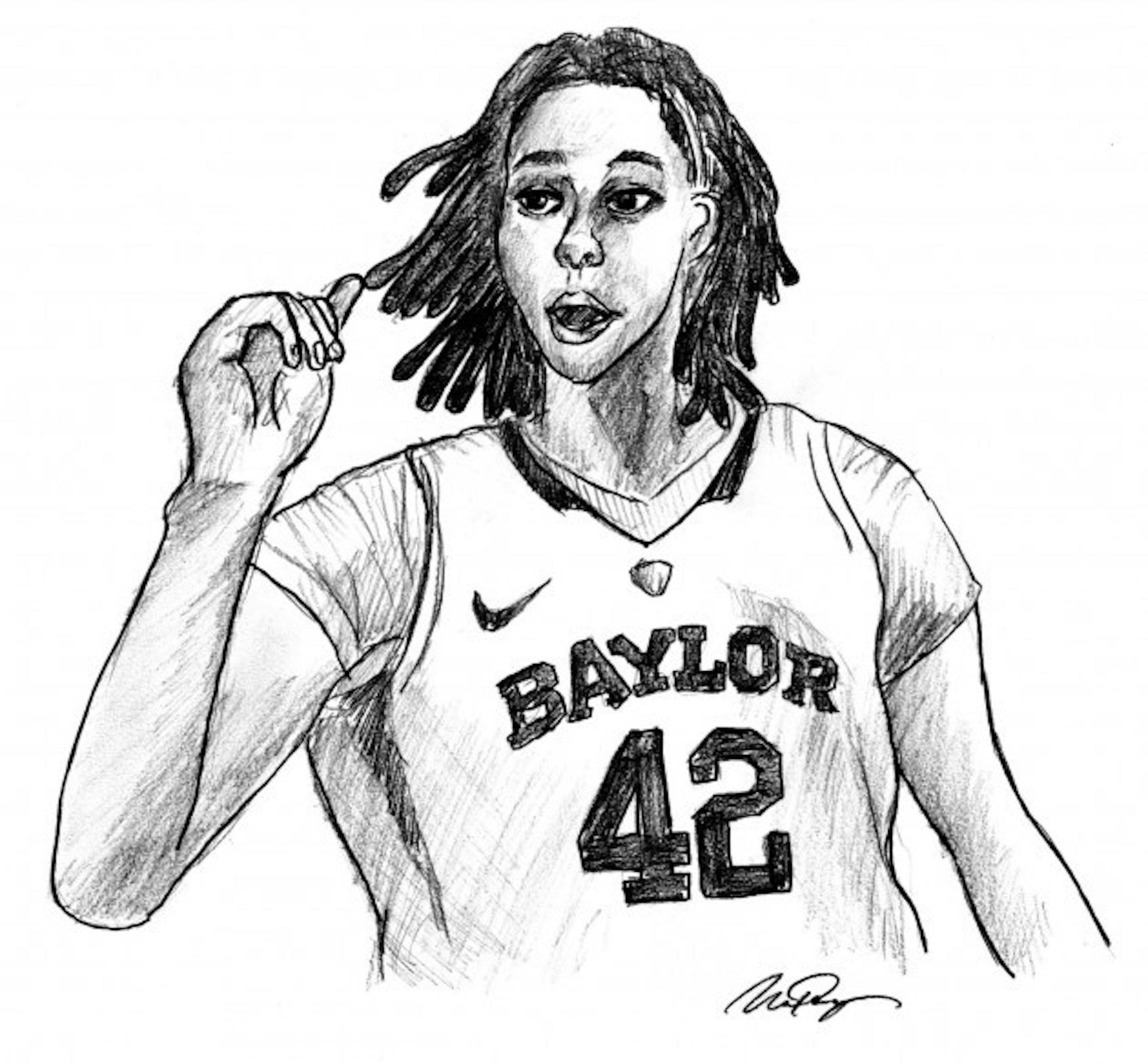Athletes should not rush to cross gender barriers
Fighting Words
Baylor University women's basketball center senior Brittney Griner just finished her illustrious collegiate career as one of the best players of all time. She will graduate with the second most points in NCAA Division I women's basketball history, and her 748 career blocks are the most ever in men's or women's college hoops. She is six feet, eight inches tall and a three-time All-American. She will undoubtedly be the first pick in Monday's WNBA draft.
Last Tuesday, Mark Cuban, the owner of the NBA's Dallas Mavericks, said that he would consider taking Griner in the NBA draft and give her the opportunity to prove that she could play in the men's league. "If she is the best on the board, I will take her," Cuban told reporters before his team faced the Los Angeles Lakers. "I've thought about it already. Would I do it? Right now, I'd lean toward yes, just to see if she can do it. You never know unless you give somebody a chance."
Would Griner make it in the NBA? I'd be inclined to say no. She has thrived during her career playing against defenders that are typically six inches shorter than her. She would struggle against someone as tall and muscular as Lakers center Dwight Howard. The difference in speed, strategy and even the size of the ball between the men's and women's games are all working against her. She could potentially find room on a team as an undersized power forward, but the odds are slim.
But the important question is not whether or not Griner could compete in the NBA. We should be asking, if she could, should she? A woman in male professional sports is certainly conceivable-Miami Heat forward Shane Battier said that he believes that it will happen in our lifetime. When that player comes along-whether it is Griner or someone else in the future-should that player forego the WNBA in favor of the men's league?
Think about the question from that athlete's perspective. Were she to stay in the WNBA, she would likely become a star. Griner or another once-in-a-generation player would probably become the face of the league, and would have hall of fame potential. That player could aspire to become her sport's Mia Hamm-the star soccer player who put her team in the national spotlight during the 1999 World Cup and made women's soccer relevant to the American public. The WNBA is struggling financially, and could desperately use such a marketable star.
If she immediately jumped to the NBA, such a player would likely be a middling talent. Few rookies are able to make an immediate impact in the league, and those players are used to the style, speed and size of men's basketball.
This is why Griner (or another future player) should enter the WNBA, not jump straight from women's college basketball to the NBA. The WNBA has a copious amount of talent, and the potential trailblazer should prove that she is too talented for the best female players in the world before moving on from the women's league. Only at the point where she is dominating the women's game in the same fashion that Heat forward LeBron James is dominating the NBA should such a player consider making the switch. A few years of professional basketball would also better prepare her to handle the massive spotlight that would be shining at all times, as well as the many predictable sexist comments.
Ultimately, the issue of women competing in men's leagues poses many difficult questions. It's probably unfair to even compare Griner to male athletes-ESPN columnist Jemele Hill wrote that Cuban's comment "perpetuates the dangerous idea that great female athletes need to validate themselves by competing against men." She's not wrong. We should be celebrating Griner's tremendous accomplishments rather than criticizing her for not being able to stack up against NBA behemoths.
But it is a question that will be asked, and a barrier that will likely be broken. Only Griner and other superstar women's players that follow her will be able to say what is best for them. It is human nature to want to compete against the best of the best, and that will eventually lead a woman to try her hand in the NBA. Hopefully how and when it happens, that player will not rush the integral decision.
*



Please note All comments are eligible for publication in The Justice.